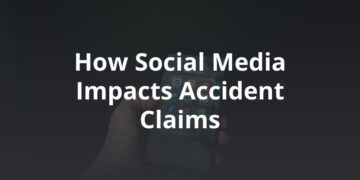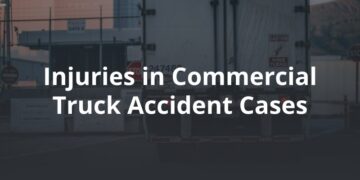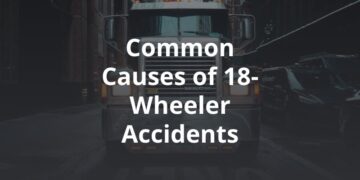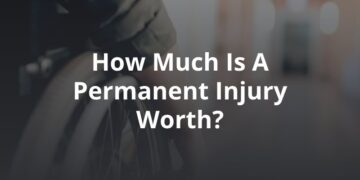In Texas, when a car accident takes place, the person or party most at fault for causing the collision is responsible for paying for a victim’s losses, including medical bills and property damage. It is up to the victim to determine and prove fault to receive financial compensation. Understanding how fault is determined in a traffic accident case can help you protect your rights as an injured victim. To understand your rights, contact an Austin personal injury lawyer at FVF Law Firm to schedule your free consultation.
What Is Texas’s Fault Law?
Determining fault is necessary after a traffic accident in Texas due to the tort-based insurance system. There are fault and no-fault states. In a fault state such as Texas, the driver responsible for causing a car accident must pay for the crash through his or her car insurance. In a no-fault state, all drivers file claims with their own insurance providers, regardless of fault.
Comparative Fault
Texas also has a comparative fault law (Texas Civil Practice and Remedies Code Section 33.001) that states: “In an action to which this chapter applies, a claimant may not recover damages if his percentage of responsibility is greater than 50 percent.” This means if a crash victim is found to have the majority share of fault, the victim cannot recover compensation.
If a victim is less than 50 percent responsible for an auto accident, however, he or she can still receive partial damages from another party. The victim’s financial award will be reduced by an amount equivalent to his or her percentage of fault.
If the victim is found to be 15 percent responsible for a traffic accident for speeding, for example, but the defendant is 85 percent responsible for running a red light, the victim’s recovery would be reduced by 15 percent. In this example, a $100,000 award would be reduced by $15,000 to $85,000.
How Do You Know Who Is at Fault for a Car Accident?
Most car accident cases in Texas are based on the legal doctrine of negligence. Negligence means that someone has breached or failed to meet the acceptable duty of care for the situation. A negligent person commits an act or omission that a reasonably prudent person would not in the same or similar circumstances.
Motor vehicle drivers can be guilty of many forms of negligence that cause vehicle collisions, such as:
- Speeding
- Reckless driving
- Following too closely
- Distracted driving
- Texting and driving
- Drunk driving
- Red-light running
- Making unsafe lane changes
- Failing to yield the right-of-way
- Driving while drowsy
In most car accident cases, determining fault requires showing that a driver violated one of California’s traffic laws or roadway rules. A driver who breaks a law has violated his or her duty to reasonably prevent accidents, and can therefore be held liable (legally and financially responsible) for the crash. This is known as “negligence per se.”
Other Determinations of Fault in a Traffic Accident Case
Negligence is the most common basis for car accident claims in Texas. However, it is not the only legal remedy.
Other possibilities include:
- Vicarious liability: fault for an accident is placed with a party that was legally responsible for the at-fault driver based on their relationship, such as an employer to an employee or a parent to a minor driver.
- Product liability: a manufacturing company or distributor is held liable for a traffic accident (or injury) that results from a defective product or car part, such as defective brakes, tires, seat belts or airbags.
- Intentional tort liability: an individual or entity is held responsible for a car accident for knowingly, intentionally or wantonly causing harm to another person, such as a case of road-rage driving or vehicular manslaughter.
The legal doctrine that may apply to your automobile accident case depends on the circumstances.
What Types of Evidence Can You Use to Prove Fault in a Traffic Accident?
Determining fault for a traffic accident in Texas takes several steps and processes. An investigation will be launched by an insurance company to get to the bottom of why the crash occurred. Investigators will search for, collect and analyze various types of evidence to identify the at-fault party or parties.
Evidence varies, but can include:
- A police accident report
- Driver and witness statements
- Photographs
- Video surveillance footage
- Dashcam footage
- Citations against a driver for infractions
- Vehicle maintenance records
- Cell phone records
- Expert testimony
With this evidence, the insurance company will try to reconstruct the car accident to determine fault. This evidence can also be used by the victim or plaintiff to meet his or her burden of proof, which is a responsibility the victim has to show that the defendant is more likely than not to be responsible for the crash.
How to Achieve a Fair Settlement After a Car Accident
If you get involved in a traffic accident in Texas and need to file an insurance claim, it is important to realize that a car insurance company is not on your side. Insurance companies turn a profit by keeping client payouts as low as possible. They may use tactics such as offering fast, lowball settlements or even denying valid claims.
Keep the following tips in mind when dealing with a car insurance company to improve your chances of recovering fair financial compensation:
- Always get immediate medical care for your injuries.
- Don’t talk about your injuries with an insurer until you’ve seen a doctor.
- Keep your answers to questions short and simple.
- Do not admit fault for the automobile accident.
- If you are asked to give a recorded statement, politely decline.
- Don’t rush into accepting the first settlement offer made.
- When in doubt, hire an attorney to communicate with an insurance company on your behalf.
- If your claim gets rejected, don’t give up. Contact a lawyer for assistance.
Another driver’s car insurance company may be responsible for paying for your past and future medical bills, lost wages, vehicle damage, pain and suffering, a loved one’s wrongful death, and more. The best way to deal with an insurance company, prove fault and negotiate for maximum financial compensation is by hiring an Austin car accident attorney to represent you.
Get Help From an Experienced Car Accident Attorney
Determining and proving fault are key elements of a traffic accident case. Luckily, you do not have to deal with your claim alone. You have the right to hire a car accident lawyer to represent you. Your lawyer can investigate the car accident, collect evidence, determine fault, and go up against one or more parties on your behalf.
Contact FVF Law Firm for a free car accident case consultation in Austin. We have over 100 years of combined experience.








